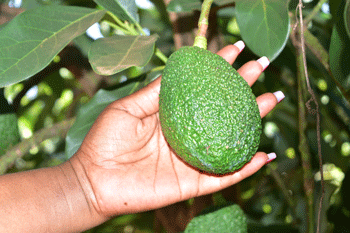
Advancing technology for avocado production in Kenya
As the horticulture industry continues to recognize avocado as a produce keen on increasing the country’s foreign earnings, players are investing more resources and research in the produce even as it continues to excite local and export markets. Avocado remains the single highest exported fruit accounting for 80% of the total earnings The global increase in demand for the fruit has been accelerated by international recognition of the multiple health benefits associated with it and thus making it an inclusion in most diets.
But avocado has also had its fair share of challenges from pests and diseases, effects of climate change and poor farming practices by smallholder farmers that has seen rising interceptions.
It is against this background that hundreds of industry players recently came together to place a pulse on the status of the industry. The Avocado conference dubbed ‘Advances in Technology for Avocado Production in Kenya’ was organized by The New Zealand Institute for Plant and Food Research Limited (PFR) in partnership with the New Zealand Ministry of Foreign Affairs and Trade (MFAT), Kenya Agricultural and Livestock Research Organisation (KALRO), Kenya Horticulture Crops Directorate (HCD), and Olivado EPZ Ltd.
In 2013, the New Zealand Ministry of Foreign Affairs and Trade, in partnership with The New Zealand Institute for Plant and Food Research Ltd and Olivado EPZ Ltd, initiated the Kenya Avocado Industry Support Project (KAISP), aimed at developing and introducing new and improved technologies to support the growth of the avocado industry in Kenya. This workshop marks the end of this project, and as such, we would like to invite you all to join us to present key findings from our 10 years of operating research, implementation and extension on the ground in the Kenyan Central Highlands, and discuss the pathways to ensure a sustainable future for the industry.
The workshop highlighted the key outputs from the research done on Avocado as well as discussing the pathways to ensure a sustainable future for the industry.
Among the topics discussed at the workshop included Fruit quality: the importance of fruit dry matter as a measure of fruit maturity, quality and consumer preference, Fruit maturity: a novel, computer-based model for predicting optimum harvest maturity dates in different localities across Kenya, Avocado water use and irrigation needs: A computer-based model defining water needs of trees of different ages throughout the avocado growing areas of Kenya. This is a vital tool for identifying locations and soil types across Kenya suitable for sustainable avocado production. Others included Sustainable avocado orchards: Orchard biodiversity, soil restoration, fertility maintenance, as factors in sustainable avocado production in Kenya and Meeting the research needs of the avocado industry in Kenya.
One key highlight of the workshop was the discussion on the Avocado disease called Phytophthora Root Rot which can progressively destroy avocado trees in an orchard resulting in economic losses. The symptoms include wilting, yellow leaves, and branch dieback. Experts say to prevent these farmers are advised to buy their seedlings from reputable and reliable nurseries that observe high levels of hygiene.
The rise of the avocado industry has to a great extent been necessitated by partnerships.
One such collaboration has been The Kenya Avocado Industry Support Project by The New Zealand Institute for Plant and Food Research Limited (PFR), New Zealand company, Olivado and small-scale avocado growers in Kenya. It was initiated with the aim of developing and introducing new and improved technologies to support the growth of the avocado industry in Kenya.
New Zealand is a world leader in horticulture and global food production. A key aspect of New Zealand’s increasing engagement with Kenya is sharing the expertise to promote sustainable economic development and support food security. Plant & Food Research has been working with Olivado operations in Kenya to strengthen the avocado industry. The combination of New Zealand horticulture expertise and a secure pathway to market provided by Olivado has been advancing the economic development of small holder farmers.
The goal of the project has been to more than double the average return to small holder avocado farmers by improving their yield, shifting to a new variety of avocado tree and improving post-harvest practices.
“By increasing both the productivity and the quality of production we’re hoping to be able to make a big difference to the lives of the smallholders. The key to the long-term sustainable success of this project is going to be linking their growth to the success of Olivado’s business which sells the oil in over 30 countries” says Plant & Food Research Business Development Manager Barbara Stowe.
Olivado provides a secure pathway to market for about 1,200 smallholder avocado farmers in the Central Highlands north of Nairobi. These smallholder farmers generally have farms of just 1 hectare, with on average just 24 trees. Additionally, about 45% of the smallholder farmers are women.
With Olivado’s operations in Kenya, there is a visible improvement for farmers: new houses, wells, children going to school. The project will see these farmers moving from subsistence agriculture to being part of the cash economy, a real step forward in development.
“At one farm the additional income from the Olivado programme has allowed farmers to buy a cow, which they named ‘Olivado’. In another example a farmer is buying a small number of bricks each year, with hopes of building a new home to replace his present mud house. It’s a great project to be a part of” says Stowe.
Olivado has two production bases, a factory at Kerikeri in the Bay of Islands for New Zealand production and bottling and a production plant in Nairobi, Kenya. Their Kenyan facility purchases Fair Trade and Certified Organic avocados directly from independent, family-owned smallholder farms in the Central Highlands of Kenya.

